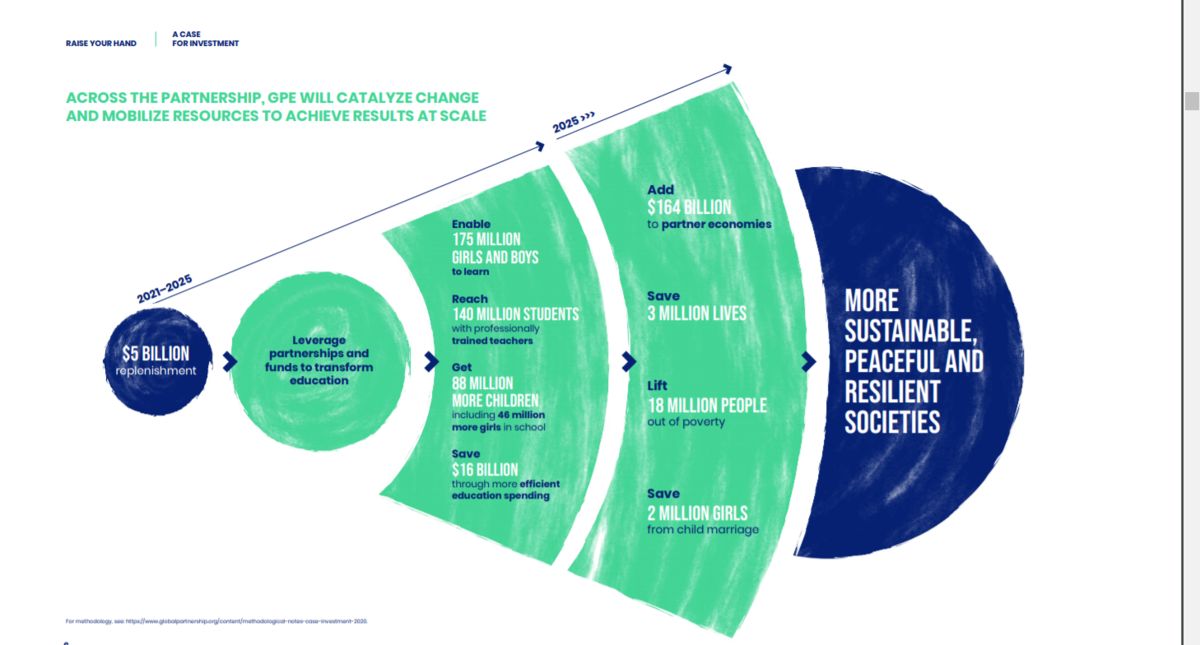Speaking up and sharing my story
Ethnic Young Adult Intern Noemí Wilson shares about her Congressional meeting advocating for education.

My second week with RESULTS was just as eventful and exciting as the first! The weekend of my first week was RESULTS’ Annual International Conference, and the week after is called Advocacy Week. This is when participants in the conference, especially RESULTS volunteers who are the organization’s core, take what they learned at the conference and put it all into action. Lots of meetings with congressional offices happen during this week. For example, I joined a meeting with my senator, Dick Durbin’s office.
Although I have joined Congressional meetings before, I was a bit nervous as it was my first time doing so with RESULTS. I wasn’t sure of the expectations, but I had support. Before the meeting, I joined an “Office Hours’ Zoom call where others gave me tips for the meetings. In the meeting were board members and RESULTS volunteers who encouraged me not to be too nervous, be myself, and use my identity and personal narrative to our advantage. They explained that as a minority, it is almost impossible for others to invalidate my story and personal experiences and that I did have an important voice that I should use.
We met with Jason Chue, a foreign service officer working as a fellow at Durbin’s office in the meeting. We discussed the need for funding for global education and tuberculosis efforts. I mostly listened but when the topic of education arose, I swallowed my nerves and remembered the encouraging words I heard during office hours the day before. One volunteer told me to bring my “whole self” to the meeting and that’s just what I did. I shared my thoughts throughout the meeting and how I felt it connected to my life.
As a product of Chicago Public Schools, I have seen the disparities of quality education all across the city. I always traveled a bit further from home from school to make sure I was going to a “better” school, not in my neighborhood. CPS has many issues, many of which I believe stem from the lack of an elected school board. While I lived there, there were at least two, maybe three teacher strikes. I felt these effects as my mother is a bilingual kindergarten teacher on the city’s west side. I told those in the meeting that even in Chicago, a central city to this country, even the world, resources are not distributed with equity in mind. Although I had to jump through some hoops, I am grateful my parents understood the system and did this because it has allowed me to get to American University, bringing me to the very moment of the meeting with Durbin’s office. During my time at AU, I have consistently researched Guatemala, my mother’s country. I have learned all about the thirty-six-year-long civil war that primarily targeted the Indigenous population.
The struggles of Indigenous people worldwide is intrinsically tied to education. This population is consistently ignored, and their rights are denied. In Guatemala, all children should receive at least public education, but this is not the case for Indigenous children. During the war, they were forced into the highlands of the country and continue to live isolated from the rest of the population. The government ignores their needs and instead violates their rights for their own benefit. Instead of building schools for these communities, the government authorizes companies to evict them from their land for the sake of development projects like mining, hydroelectric dams, palm oil production, and more. As Jason mentioned during the meeting, a big concern when giving money to another country’s government to address an issue like a broken educational system is ensuring that the government uses it effectively and prioritizes the communities that need it most.
This issue connects well with the book we are reading for our Weekly Devotional. In last week’s chapters, author Karen Gonzalez recalls when she first learned of her country’s hidden and oppressive actions against Indigenous people. She once saw the United States as the country that provided her safety and freedom. But upon knowing that the U.S. funded the civil war in Guatemala, her perspective changed. I felt the same way when I began to uncover the facts of this situation during my freshman year of college. I am grateful that Gonzalez has expressed her true sentiments for readers like me to understand and relate to more deeply. I am also thankful for the safe space Weekly Devotional provides for me, an ability to express what I am thinking while I read while also hearing what others with different backgrounds take away from the book. This is how we continue to grow in our faith and mission towards justice.